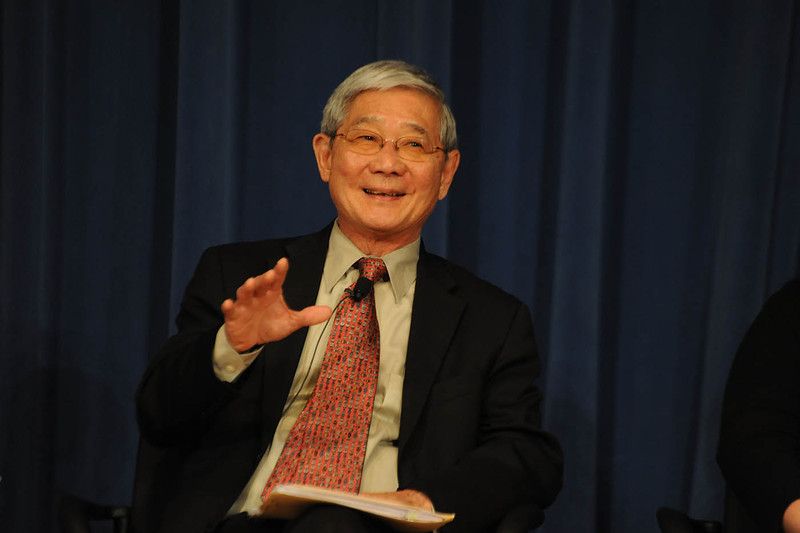A Tribute to My Dear Friend, Franklin Odo
Associate Professor of American Studies Robert Hayashi reflects on the legacy of the late Professor Franklin Odo and his incredible contributions to the Amherst community.

That smile. When I recall my friend and mentor Franklin Odo, it is his omnipresent smile that I picture: a big inviting grin. It is hard now to imagine walking through Morgan Hall without seeing it. For his smile didn’t just cheer you up on the gloomiest of cold New England February mornings (we get a lot of those here); it also embodied his welcoming and uplifting presence. He both pulled you in with his warmth and generosity and held you up in a net of support that spanned generations, encompassing scores fortunate enough to have been graced by his care. He advised and mentored countless undergraduates, graduate students, activists, organizations, scholars, and even prospective Amherst students over the course of his life. Because his impact was so broad and sustained, outpourings of shock and grief have rippled across my social media feeds since his passing a few weeks ago.
I had known of Franklin Odo the figure, a leader in the field of Asian American studies, for years, but came to know Franklin Odo the person while working with a group of scholars for the National Park Service on developing a theme study for Asian American and Pacific Islander history. It was a daunting and troubling task — jamming centuries of histories of disparate peoples into a workable and limited frame. We managed in large part due to his engaging leadership, steady demeanor, and his characteristic unflagging energy. Did he ever stop? I recall chasing him through the Metro during a field trip to Washington, D.C., after a snowstorm, careful not to get ditched as he scurried through the hordes of commuters.
He was also a connector: bringing people in communion, as on that D.C. field trip where nearly 20 students from the Five Colleges were graced with a private tour of a new Smithsonian exhibit. . I’d known he would bring those qualities to Amherst, but I never imagined that he would have such an impact during his too-few years here. He quickly made connections throughout the Five College community with numerous staff, faculty, alumni, and most of all, with students, for whom he was a beloved mentor, respected elder, and trusted confidant. I joked with him that he was the gift that kept on giving. Did he ever say no? Not to anyone I know.
As an activist, teacher, scholar, public historian, and leader for over half a century, Franklin Odo committed himself broadly to justice and specifically to establishing a place for Asian American narratives in the national story. He was there in the nascent days of protest and possibility, and soon became an internationally recognized figure. After building programs in academe, he made the uncharacteristic transition to public history, becoming the founding director of the Smithsonian’s Asian Pacific American Center. Over the years, he became a polestar for generations inside and outside academe, often helping you without you ever knowing. His formidable career, coupled with his self-possession, humility, and aloha spirit reminded many they had a place in the most elite spaces and could shape them while remaining themselves. He also reminded us how much our stories matter — to us and to the nation — and of the responsibilities we have as stewards of them.
In one of those many social media posts I’ve been seeing in recent weeks, someone described Franklin Odo as like a stream: clear and consistent, which he was. But being both a water lover and witness to his many contributions, I saw him more as a whole ecosystem — a Great Lake maybe, given all that he supported and nourished over generations.
One of his grieving former students sent me a message after his passing: “He left me no guidebook.” I tried to assure her that he did — in how he lived. In his copious curiosity, unwavering care for others, and lifelong commitment to community. All of which was in that smile.


Comments ()